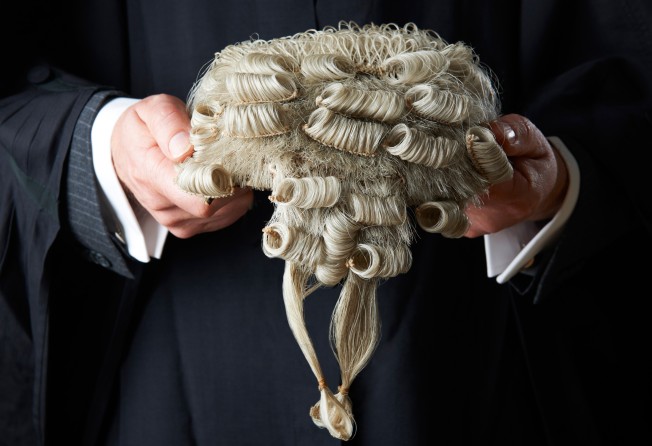The wigs may go, but the core legal principles must remain
- Assessments of how Hong Kong’s legal system is faring often focus on how much it has stayed the same. Appearances, however, can be deceptive

Just before Hong Kong’s return to China, 25 years ago, I bought an artwork that reflected uncertainties about the future of the legal system at the time. It showed a young Chinese barrister looking pensive, set against the national flag.
A year later, I showed a visiting Australian lawyer around the High Court. “Business as usual,” he said. “The only difference is the five stars on the wall.”
The common law system inherited from Britain is so integral to Hong Kong’s success and way of life, assessments of how it is faring often focus on how much it has stayed the same.
Even in 1998, there had been some changes. The higher courts were given different names. The Court of Final Appeal was established. And the judges began interpreting the new de facto constitution, the Basic Law. The big constitutional battles began.
But, as the Australian lawyer said, anyone visiting a court a year after the handover would not have noticed much difference. Even the traditional wigs and gowns worn by judges had survived.
The same would be true today. An observer might notice fewer foreign judges and more cases heard in Cantonese. Otherwise, proceedings would seem little changed.
Appearances can, however, be deceptive. Hong Kong has been transformed in recent years by civil unrest and a new national security law. The political divisions in society and need for judges to apply the security law have inevitably had an impact on the judiciary. Once again, there are uncertainties and concerns about what the future will bring.
Last week Hong Kong’s first two post-handover chief justices looked to the future in interviews with the Post. Andrew Li Kwok-nang led the judiciary for the first 13 years after the handover. He was succeeded by Geoffrey Ma Tao-li, who retired in January last year.
Both expected the legal system to survive long into the future. They played down the impact of the national security law. Li said all jurisdictions needed to protect national security. Ma stressed the role of the judges was to apply the law, regardless of whether they like it or not. But in doing so, they would strike a balance, taking human rights into account, he added.
The national security law made significant changes to the legal system. Judges for security cases must be approved by Hong Kong’s leader, juries can be dispensed with, there are minimum sentences and a high threshold for bail. The judges have an important role to play in clarifying the broad terms of the law and, hopefully, narrowing its scope through their rulings. This will take time.
Li stressed the need for the courts to decide cases independently, without fear or favour. He provided a reminder that defendants are innocent until convicted and that guilt must be established beyond reasonable doubt.
This applies to all cases. These fundamental principles should be promoted, respected and observed by all involved in the legal process, from officials to lawmakers and members of the legal profession.
The application of such principles means there will almost certainly be cases, perhaps involving sensitive issues, in which not guilty verdicts are returned. Sometimes there will be insufficient evidence to meet the high threshold for conviction. Perhaps witnesses prove to be unreliable.
Judges from different backgrounds with differing legal philosophies need to be given an equal chance of advancing their careers and being assigned important cases.
People must continue to have the confidence to bring challenges to the government through judicial review. That will only happen if they believe they have a fair chance of success. The courts must be prepared to protect human rights and strike out local legislation that conflicts with the Basic Law. Such actions are an integral part of Hong Kong’s legal system. They, too, need to be preserved.
There might come a time when the wigs and gowns go. But what judges wear does not matter as much as what they do. Confidence depends on rulings being free and fair, whatever the future may bring.